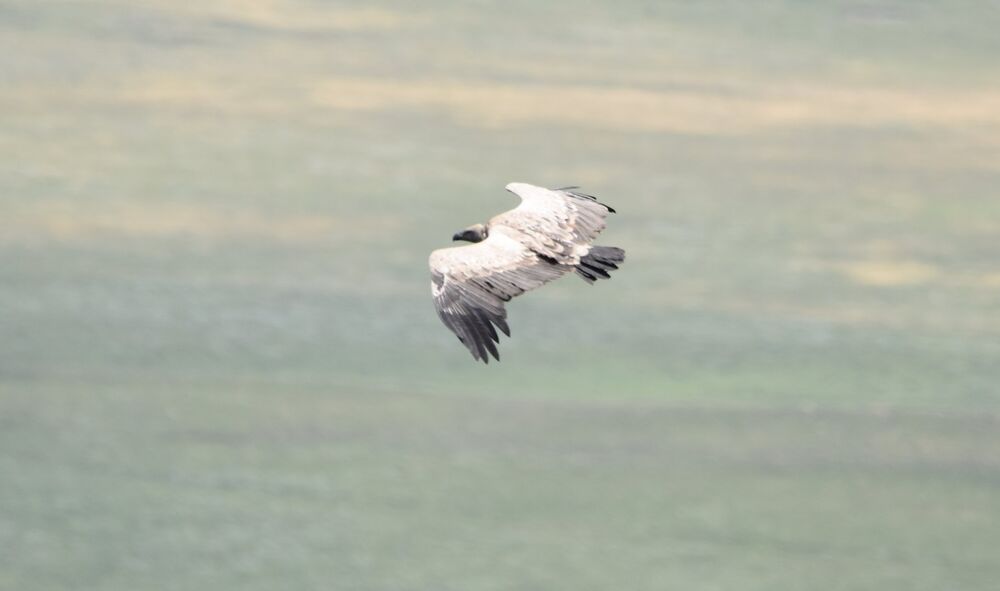
Exploring the Skies with the Mighty Cape Vulture
When you think of Southern Africa's wildlife, what animals come to mind? Maybe the Big Five or the magnificent African fish eagle. However, there is a lesser-known bird of prey that deserves just as much attention: the Cape vulture.
When it comes to majestic birds of prey, few can match the awe-inspiring Cape Vulture - which is why it is included on our Top 10 South African Birds for International Birders.. With its massive wingspan and razor-sharp talons, this bird is a true symbol of strength and resilience. But there's more to this species than just its physical prowess – the Cape Vulture is also a crucial player in the ecosystem, and its survival is intertwined with the well-being of many other creatures. So if you're looking for a truly unforgettable wildlife experience in South Africa, look no further than the magnificent Cape Vulture.
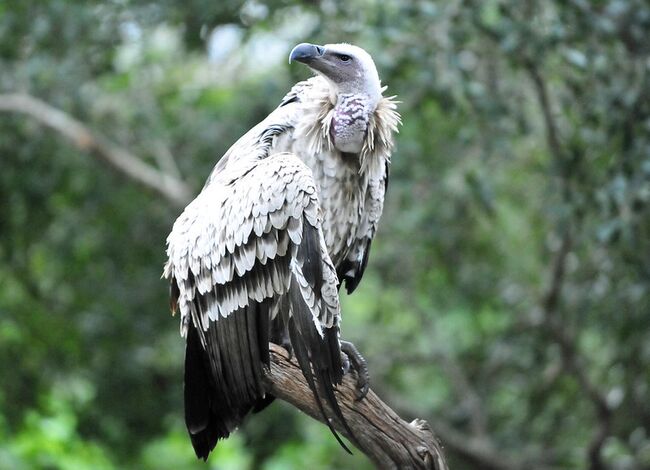
Cape Vulture - Photo Credit: Heather Paul
Appearance and Behaviours
The Cape vulture, also known as the Cape Griffon, is a large bird of prey that is endemic to Southern Africa. These birds can be identified by their striking appearance: they have a bald head and neck, which is an adaptation to prevent blood from their prey from sticking to their feathers. Their wingspan can reach up to 2.6 meters, making them one of the largest vulture species in Africa.
Cape vultures are a social bird and can often be found flying in groups, known as "kettles." They are monogamous and will mate for life. During breeding season, they build their nests on cliffs, and the female will lay one or two eggs. Both parents take turns incubating the eggs and caring for the chicks, which will fledge after four to five months.
Cape vultures are also known for their scavenging habits, feeding on the carcasses of dead animals. They have an incredibly strong digestive system, allowing them to eat decaying meat without getting sick. This helps to prevent the spread of disease in the environment.
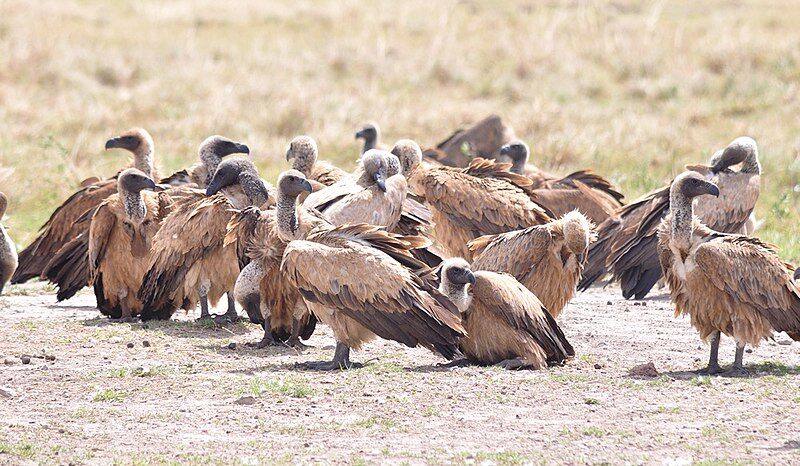
Group of Cape Vultures - Photo Credit: Wikimedia Commons
Where to Find
Cape vultures can be found throughout Southern Africa, but they are particularly prevalent in the Drakensberg Mountains. and other mountainous areas from Cape Town to the North of South Africa. This is due to the fact that they nest in massive colonies on cliff faces. They can also be found in national parks and game reserves, such as Marakele National Park, the Kruger National Park and De Hoop Nature Reserve near Cape Town. Another surprising location to find huge numbers of them is only an hour from the bustling streets of Johannesburg and Pretoria, at the Skeerpoort cliffs in the Magaliesberg Mountains.
If you're looking to spot a Cape vulture, the best time to do so is early in the morning or late in the afternoon when they are most active. Look for them soaring in the sky, searching for food. You can also visit vulture hides (or "restaurants"), where you can observe these magnificent birds up close without disturbing them.
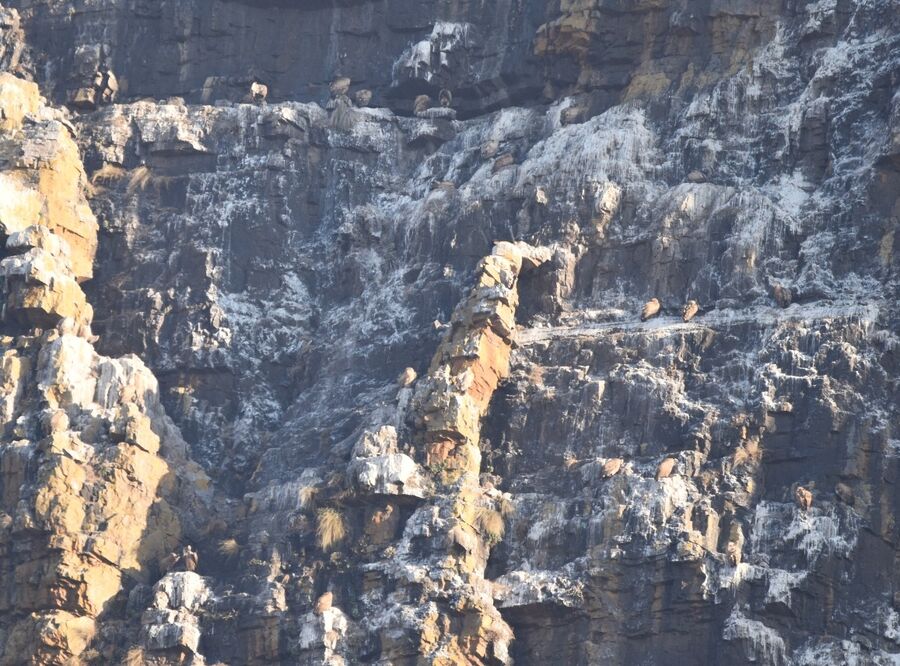
The cliffs above Skeerpoort are painted white with Vulture droppings. If you look closely at this photo you can see multiple vultures roosting on the rocks in the early morning.
Cultural Significance
For many South African cultures, the Cape Vulture is a creature of great significance and importance. In some communities, the bird is seen as a symbol of power and strength, and is even considered to have supernatural qualities. The vulture's ability to fly high above the earth, surveying the landscape below, has led to it being associated with divinity and the spirit realm. It is also thought to be a messenger between the physical and spiritual worlds, carrying prayers and messages from one to the other.
In other cultures, the Cape Vulture is revered as a guardian and protector. Its role in keeping the environment clean by consuming carrion has earned it the nickname "nature's janitor." In some traditions, the vulture is believed to keep evil spirits at bay, and is often depicted as a watchful sentinel, perched atop a hill or tree, keeping a vigilant eye on the land.
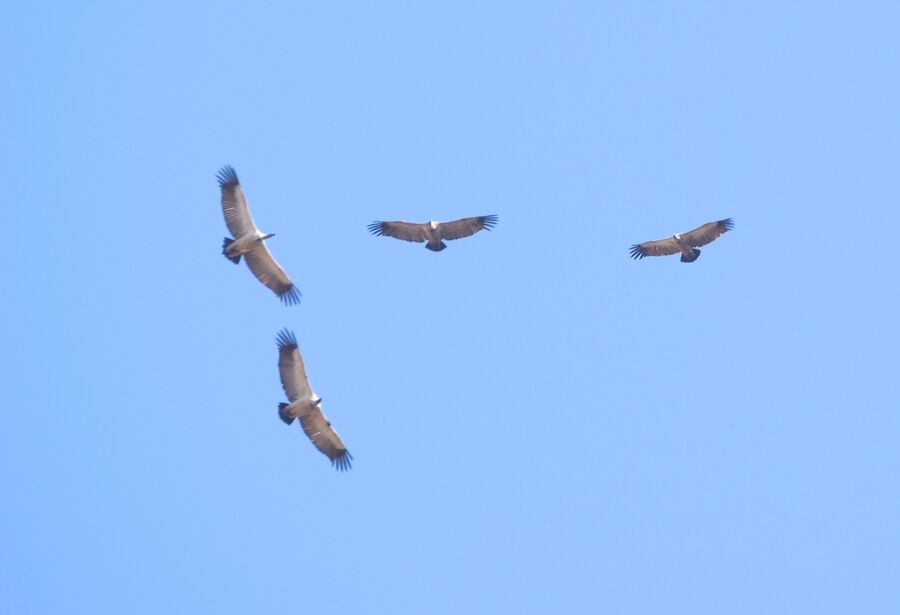
Literally hundreds of Cape Vultures breed and circle around the Skeerpoort cliffs
Conservation Status
Despite their cultural significance and importance to the ecosystem, Cape vultures are under threat. They are classified as Endangered by the International Union for Conservation of Nature (IUCN), with an estimated population of only 8,000 to 10,000 individuals. Habitat loss, poisoning, and electrocution from power lines are the main threats to their survival.
Fortunately, there are conservation efforts underway to protect Cape vultures. These include habitat restoration, education programs to reduce the use of poison, and efforts to reduce the number of power line collisions. Visitors to Southern Africa can support these conservation efforts by visiting vulture hides and supporting local conservation organizations.
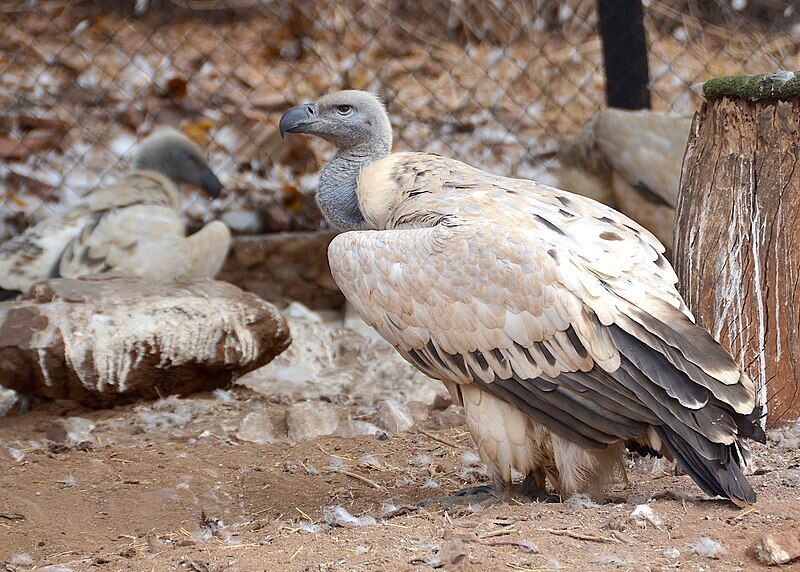
Cape Vulture at De Wildt Research Center - Photo Credit: Wikimedia Commons
Conclusion
In the end, there's no denying that the Cape Vulture is a bird that deserves our admiration and respect. From its impressive scavenging skills to its critical role in maintaining the balance of the environment, this species is a true marvel of nature. And with the right care and attention, we can ensure that the Cape Vulture continues to soar high in the skies for generations to come.
So why not take a trip to South Africa and witness the majesty of this remarkable bird for yourself? Trust us – it's an experience you won't soon forget.
